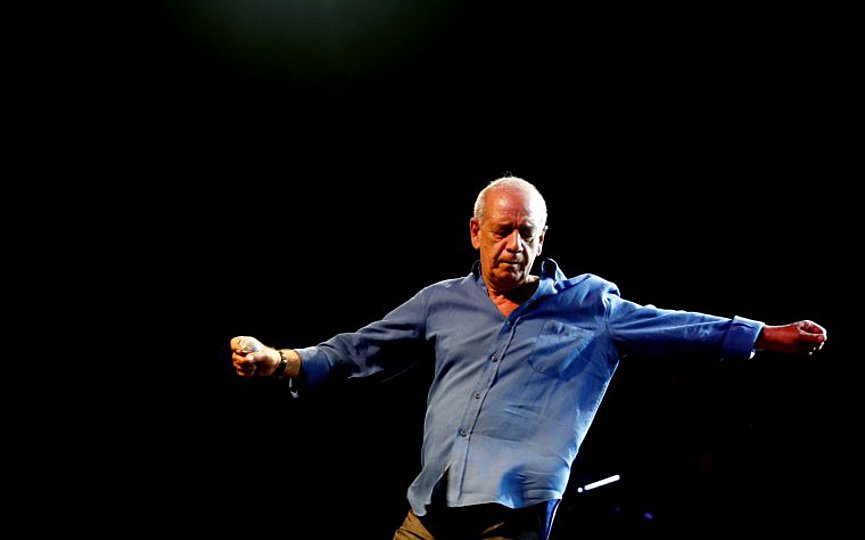Dimitris Mitropanos (Δημήτρης Μητροπάνος) was a Greek singer. He was renowned for his mastery of Laïkó, a Greek music style.
Mitropanos lived in his native city of Trikala in northwest Thessaly until the age of 16, beginning his musical career in 1964.
He worked with some of the most renowned Greek composers, such as Mikis Theodorakis, Stavros Xarhakos, Giorgos Zabetas, Manos Hatzidakis, Marios Tokas, and Thanos Mikroutsikos.
From an early age, he worked during summers to assist his family financially. First as a waiter in his uncle’s restaurant and later at ribbon cutting wood. After the third grade of junior high, in 1964, he went to Athens to live with his uncle on Acharnon Street. Before finishing high school, he began working as a singer.
At that time, with some encouragement from Grigoris Bithikotsis, whom he met at a gathering at his uncle’s company at which he sang, Mitropanos visited EMI-Lambropoulos Bros. Ltd. (EMIAL S.A.)
It was then that Takis Lampropoulos introduced him το Giorgos Zampetas, with whom he would work alongside at “Ksimeromata.”
Mitropanos considered Giorgos Zampetas to be a great teacher and a second father to himself. As he once stated, ‘ Zambetas is the only man in music who helped me without expecting anything. With all my other colleagues, I got something and I gave something in return”.
In 1966, Mitropanos met Mikis Theodorakis and sang the Party songs “Romiosini “and” Axion Esti “in a series of concerts in Greece and Cyprus.

In 1967, Mitropanos recorded his first 7″ single “Thessaloniki.” This followed the recording of “Chameni Paschalia”, a song that was censored by the Greek military junta and thus never released.
In a long career in the Greek music industry, Dimitris Mitropanos collaborated with leading artists of the Laïko and Éntekhno music. Giorgos Zampetas, Mikis Theodorakis, Dimos Moutsis, Apostolos Kaldaras, Takis Mousafiris, Christos Nikolopoulos Yannis Spanos were composers with whom Mitropanos collaborated, building a career intertwined with the Laïko tradition, until the late 1980s.
On 17 April 2012, Mitropanos suffered a heart attack earlier that morning and died. He is survived by his two daughters and his wife, Venia.

